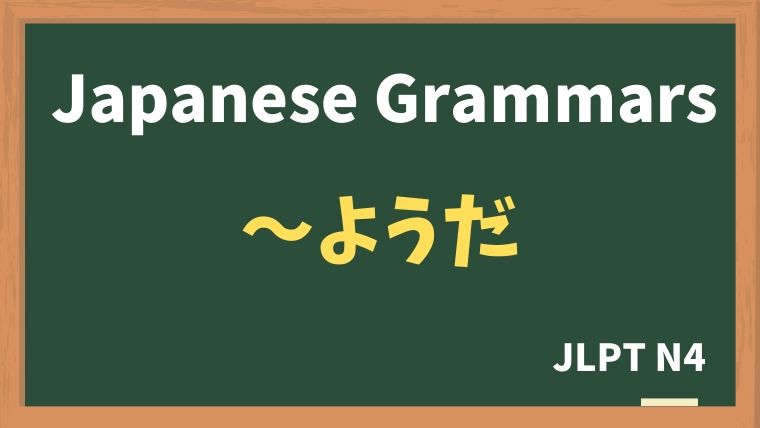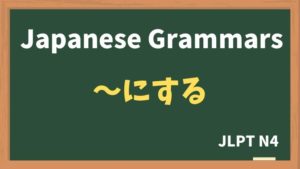
Contents
Explanation:〜ようだ
fa-check-circleMeaning
"it looks like / it seems"
Used to make inferences, guesses, or to express something that appears to be a certain way based on available information or indirect evidence. It is often translated as "it seems" or "it appears" in English.
fa-check-circleForm
V(plain form)+ ようだ
イA(plain form)+ ようだ
ナA(plain form)+ ようだ
N(plain form)+ ようだ
| verb | イA | ||
| かえる かえらない かえった かえらなかった |
ようだ | あつい あつくない あつかった あつくなかった |
ようだ |
| ナA | N | ||
| げんきな げんきじゃない げんきだった げんきじゃなかった |
ようだ | びょうきの びょうきじゃない びょうきだった びょうきじゃなかった |
ようだ |
fa-check-circlePoints
- Expresses Inference: "〜ようだ" is used when you are not certain about something but have gathered enough clues to make a reasonable assumption.
- Based on Observation or Indirect Evidence: It is typically used when you infer something from what you see, hear, or know, rather than directly experiencing it.
- Polite and Neutral: It is a relatively polite and neutral expression, commonly used in both written and spoken Japanese.
fa-check-circleJLPT Level
N4
Sample sentenes
たくさんの人が 集まっている。大きな 事故が あったようだ。
A lot of people are gathered. It seems like there was a big accident.
部長が どこにも いない。もう うちへ 帰ったようだ。
I can't find my manager anywhere. It seems like he has already gone home."
外で たくさんの 人が 傘を さしている。 雨が 降っている ようですね。
Many people outside are holding umbrellas. It seems like it's raining.
どこかで カレーを 作っているようだ。 いい匂いが する。
It smells like someone is making curry somewhere. It smells good.
隣の 部屋から 楽しそうな 声が 聞こえる。 パーティーでも しているようだ。
Sounds of laughter are coming from the next room. It sounds like they're having a party.
Vocabulary
| Japanese | English |
| あつまる | to gather |
| じこ | accident |
| ぶちょう | general manager |
| そと | outside |
| となり | next to |
| こえ | voice |
Comparison
1. "〜ようだ" vs. "〜そうだ"
"〜ようだ" is used for inference based on indirect clues or evidence.
"〜そうだ" is used for visual or immediate impressions, often based on appearance.
あめが ふるようだ。— Based on something you've heard or seen (e.g., a weather report or dark clouds).
(It seems like it will rain.)
あめが ふりそうだ。— Based on direct observation (e.g., the sky is dark).
(It looks like it’s going to rain.)
2. "〜ようだ" vs. "〜らしい"
"〜ようだ" is based on personal observations or clues.
"〜らしい" is based on hearsay or common belief.
かれは もう かえったようだ。— Based on what you see (e.g., his desk is empty).
(It seems he has gone home.)
かれは もう かえったらしい。— Based on what someone else told you.
(I heard he has gone home.)






